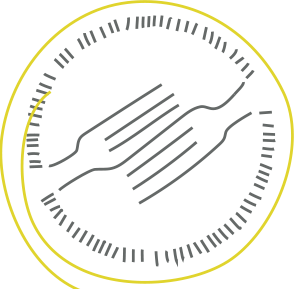The Good Doctor
Have you ever taken your child (or grandchild) to the doctor for a “wellness” check-up (or even a sickness one) and upon leaving you hear the doctor, mid-sentence saying, “And what flavor would you like?” Yes, that would be the doctor offering your kid a lollipop and most likely the ones laced with sugar, artificial flavors and food dye. Seriously? How about doctors NOT offering candy to our kids? Don’t they have enough sugar? Or if the pop is the way to get back into the good graces of our kids after too much poking and prying, how about a healthier one like YumEarth Organics? A personal favorite from your Good Brand Ambassador! Believe it or not, I have taken it upon myself to buy these pops for my kids’ docs—I try not to be too militant!
But, this begs a much bigger question? Do the majority of physicians really think about nutrition—the true power that food has on health? OK, so it’s just a lollipop, but to our kids (and to most of this world), the medical community at large exists to help us be and stay healthy. So when a doc gives a pop to the kids, what kind of precedent is that setting?
According to a National Institutes of Health (NIH) survey, most medical students rate their nutrition education as inadequate. If your doctor has any knowledge of nutrition outside of, “Eat more fruits and veggies”, it most likely comes from his/her personal or professional pursuit of more information. Cause it ain’t being taught in medical school!
Lucky for me, I work with an amazing group of medical professionals who believe in nutrition prescriptions—where food, just like drugs, is used to prevent, manage or help treat illness. So if you have acid reflux, instead of suggesting that you pop proton pump inhibitors like Nexium or Prevacid to reduce the acid, the doctors who consider nutrition will suggest that you avoid certain foods in your diet such as dairy, spicy foods, alcohol and more. They may even give you some resources like THIS to offer dietary insight and guidance. But in the end, it is up to you to change.
That is where someone like me comes in. I take this “nutrition prescription to the living kitchen” and teach you how to actually change your diet. Though, talking about what I do is not the point of this blog. Rather, it is to take a closer look at why the medical community at large leaves nutrition behind.
In 2007, the Tufts University Friedman School of Nutrition Science and Policy Magazine addressed this critical topic in Doctors’ Orders: Why physicians don’t talk about diet and exercise (but should). A great article with a slightly sad conclusion as to why docs don’t talk diet:
- Each office visit averages 18 minutes so the time is spent for an exam and to offer critical and pertinent medical information leaving no time for anything else that may be equally as important and life saving
- Insurance companies typically don’t cover for preventative nutrition counseling whether from a doctor or registered dietitian
- Physicians overall idea about diet and health is a “soft” science (meaning without much basis) and medical schools do very little to dissuade students of that fact
That being said, there are many people and programs out there who are tirelessly trying to educate the patient (and the medical community) about the powerful role food has in healing. Take my friend Rebecca Katz for example, culinary nutritionist and author of several books including The Cancer Fighting Kitchen (BTW, she will be a guest on Stirring The Pot radio on March 11th). Or how about Annemarie Colbin, PhD, food and healing pioneer and founder of The Natural Gourmet Institute for Health and Culinary Arts. There is also Food as Medicine from the Center for Mind Body Medicine where you can find the likes of Rebecca and my dear colleague Kathie Swift, MS, RD, LDN teaching the medical community and beyond about the role food that plays in health. Field to Plate founded by Amanda Archibald, RD marries the science of nutrition with the art of the kitchen through innovative workshops for health professionals. And last, but surely not least is Mary Beth Augustine, RD, CDN who lectures on the power of actual food in overall wellness to the health and medical community (as well as her patients) at large. And thankfully, this is just the tip of the iceberg!
While surely the medical profession is moving in a better direction, there is still a long way to go. So, here are some things that you can do to ensure that your doctor is doing you good:
- If the doc gives pops to your kids, suggest the better brand (or eliminate altogether)
- Talk to your physician about diet and health specific to your condition (s); if he/she can’t offer guidance, request a referral to someone who can (like a registered dietitian or nutritionist)
- If you can’t get the answers that you need, check out the Institute for Functional Medicine to find a doc who will talk shop with you
- Or ask your family and friends if they know a good doc and please share his/her name with us so we can pay it forward.
Finding a Good Doctor who is knowledgeable about food and nutrition may take some time and even cost a little more but in the end, all we really have is our health. And that is priceless!
Let’s keep this conversation going. Please feel free to share your thoughts and opinions. I would love to hear from you!

